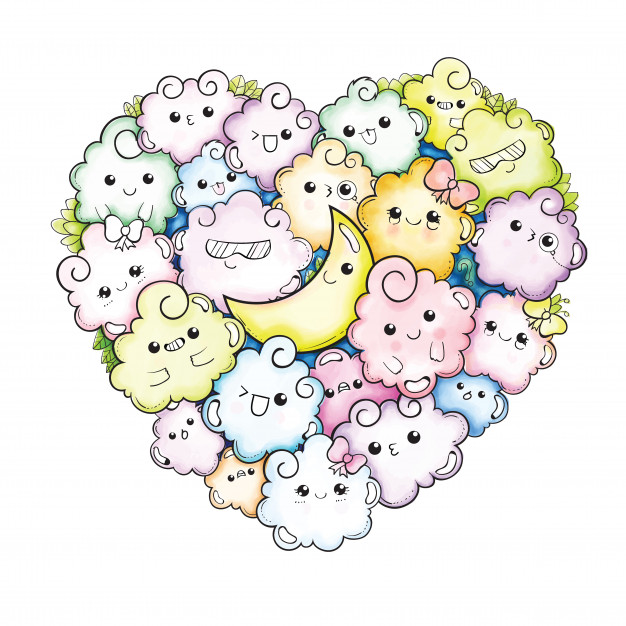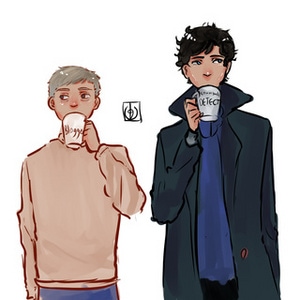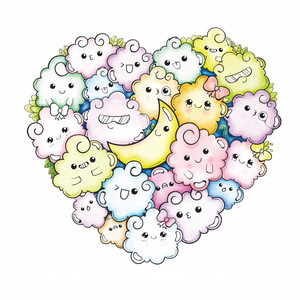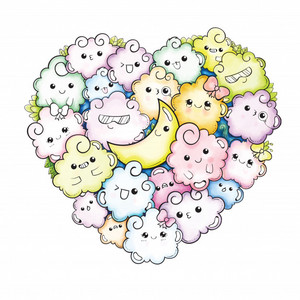The first time Sherlock leaves a note on the scene of a crime, it's a defense mechanism. The murder had been brutal, far more than either the detective or the doctor could take. Sherlock breathes heavily and holds back the tears. He writes the couplet on a wall of the alley where it happened, and leaves hurriedly, coat billowing morosely behind him.
Life lives on, in spirit and dreams, deaf to those on Earth who scream.
________________
The first time John sees a note at a crime scene, he cries silently, mourning the dead, mutilated child in the alley. The couplet jolts him, and he stares at it with tear-stained eyes till Sherlock rushes away.
He wrote it down in his book, and turned his face to the somber dawn sky.
________________
The next time Sherlock leaves a note at a case, it's on whim. He figures that it's an obituary to the child in the alley. This time, he smiles a little at his note on the wall before running off. The gray-blue sky reflects his mood well.
Who are we to stop the soul from flying free? Who are we to take the sparrow from her tree? I, certainly, shall not.
________________
John stares at the new message. He writes this one down too. He figures these are important.
The sky seems to agree.
________________
This time, Sherlock leaves a note to make a mark, to protest against the petty hate that ended in bloodshed. In anger, he scrawls darkly on a sign-post.
How much must a man suffer till his enemies stop their hateful acts? Why is humankind so fiercely terrible?
The wind seems harsher this time.
________________
John replies this time.
Under the note, he writes in felt-tip.
Humankind tends to be that way. Aren't you?
________________
Sherlock returns the that crime scene the next day. He figures he should stop the notes and intends to wipe it away. Underneath however, there is an answer.
Aren't you?
The words echo in his head all day. He replies later that day.
So I am. Are you?
________________
John can't sleep that night. Who was this mystery person? A man, considering the way he wrote. A poetic one too.
John laughs softly. He seems to be turning into Sherlock. Not that that's a bad thing, he thinks. Mm...tall, slender, beautiful mind.....de-lec-table arse. It's been a while since John came to accept his slight attraction to his deviously handsome flatmate. Ok, maybe more than a slight attraction. He turns to his side, and falls asleep shortly, dreams filled with a confident, alluring consulting-detective.
________________
The next morning, John rushes to the crime scene to write his reply.
I am. I'd tell you more if you'd meet me...
Who are you?
________________
Sherlock decides to check the old crime scene for new notes. It's a foolish thing, but he quite likes the mystery surrounding his new correspondent. He could, of course, deduce the man easily, (yes, of course it's a man! Look at his handwriting, and the slight increase of pressure on the index finger that shows through in the writing!) but that of course would ruin the fun. Considering that he already knew the man's height (the writing wasn't that high up, and people tend to leave notes on eye-level), hair color (there was a strand of it near the wall), and eye color (blue eyes and blonde or tan hair are a statistically probable match), Sherlock figures that he could easily find him if he happened to be a criminal. Not likely, since criminals do not tend to leave notes at crime scenes. But there are always exceptions.
Once he arrives at the scene and dodges a couple of policemen, Sherlock makes his way to The Wall. He's not sure when it became 'The Wall', but that's a trivial matter. What really does matter is the note underneath his.
Who are you?
Sherlock stands facing the wall, confused. Should he tell this person who he is? Should he leave the person hanging, considering that innocent passer-bys would not reply to strange messages on a wall near a crime?
What would John do?
Sherlock gets momentarily distracted by that thought. His Mind Palace and the rest of its contents had become increasingly less important in the face of the John Wing. Sherlock doesn't mind. In fact, he finds it extremely enjoyable to browse through the various exhibits in the John Museum (Museum?). He's come to realize that he holds John Watson in a different way.
In his heart, not his head, for that matter.
He writes a brief reply.
A man in love for the first time. You may call me S.
________________
A man in love for the first time. You may call me S.
John stares at the message.
S....Sam? Simon?
Somehow those common names seem to pale in the face of whoever this person was. He would have a royal, regal name, thinks John. Something like...well, he couldn't think of any royal, regal names that started with S. Apart from Sherlock. And it couldn't possibly be him. This man was in love.
For the hundredth time that week, John finds himself wishing that the detective would learn to love.
He writes underneath, loneliness pooling in his heart even as his message takes a different tone.
In love? With whom?
________________
Sherlock decides to re-visit The Wall again today. By now it's stopped resembling a crime scene, and the police have vacated the area. When he gets there, he quickly finds the message.
In love? With whom?
Sherlock wonders how to answer this. If he were to describe John in detail, which he easily could, the message would run too long. There were so many aspects to the wonderful John Watson. An overwhelming sense of sadness rushes over him.
He replies, morosely:
His name is John. John Watson. He is the first and only human being I have ever loved, and will ever love. However, I am not the kind of person to be loved by a man like him. I am...well, if you knew me, you might say that i was unlovable.
Apologies. I seem to have provided a long answer to a simple question.
Are you, Mystery Man, in love? It is truly a great and terrible thing
________________
John stares at the reply. His name echoes back to him, and for one, horrible second, he thinks this is all a joke. But he feels the emotion radiating from the text, and he can almost hear the writer's misery.
The writer.
The writer...S. S, who knows John closely. S, who thinks he's unlovable. S, with a regal name.
S.
No. Not S.
Sherlock. It has to be. It has to be him. John doesn't realize he's running, nor that he's somehow reached Baker Street. Doesn't realize that he runs past Ms. Hudson like a man pursued. His heart and his mind and every single atom in his body is only concerned with one thing.
He bursts through the doorway, and stills two feet away from Sherlock attentive frame, from his darting, curious eyes that ask questions faster than words could.
He means to explain. He means to start from the beginning, from the first feeling of love. From the first note. He means to tell Sherlock exactly how much he loves him in a dramatic and impactful statement.
But in this moment, with the fresh knowledge that, yes, this man can love, and, yes, it's me that he loves (because of course there's no doubt about the author's identity), all John can do is reach for Sherlock's beautiful face and kiss him.
And every good thing in the world could not make John happier because Sherlock's kissing back.
They kiss and kiss till they're forced to part, if only for air.
There's a light blush tinting Sherlock's cheeks.
There's a smile on John's face.
All is well.












Comments (0)
See all